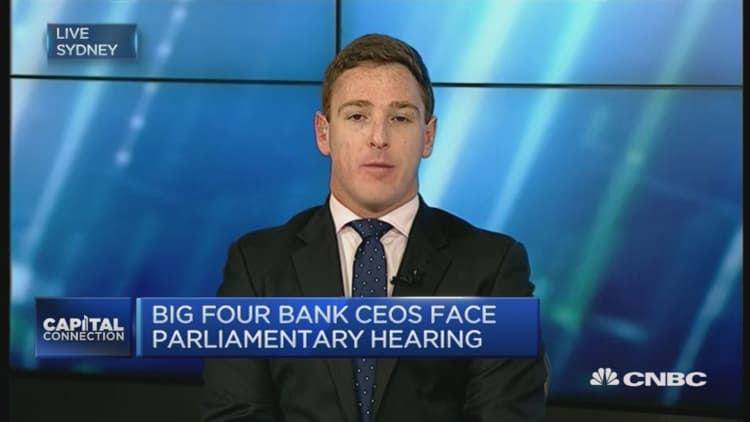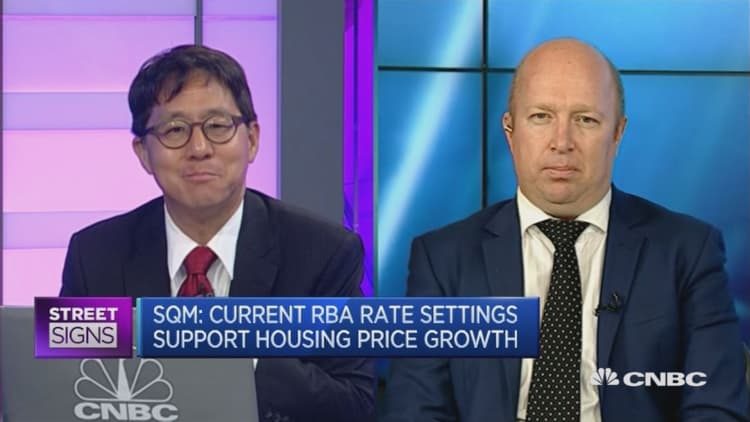

The Reserve Bank of Australia (RBA) kept the cash rate on hold at 1.5 percent, in the first monetary policy decision overseen by new Governor Philip Lowe.
In a statement released after the decision, Lowe—who was deputy governor before replacing Glenn Stevens in the top role—said that the Australian economy was continuing to grow at a moderate rate.
"The large decline in mining investment is being offset by growth in other areas, including residential construction, public demand and exports. Household consumption has been growing at a reasonable pace, but appears to have slowed a little recently," he said.
Business and household sentiment were above average, while labor market indicators were mixed and inflation remained quite low, he noted.
Australia, the world's twelfth-largest economy, targets an inflation rate of 2-3 percent on average over the economic cycle.
The global economy meanwhile was continuing to grow, albeit at a lower than average pace, and China was supporting growth, according to the statement, while commodity prices had risen and financial markets were functioning effectively.
"Taking account of the available information, and having eased monetary policy at its May and August meetings, the board judged that holding the stance of policy unchanged at this meeting would be consistent with sustainable growth in the economy and achieving the inflation target over time," Lowe said.
Tuesday's decision was widely expected by the market, with the Australian dollar little changed following the news.
"With no major economic developments in the last month, and new Governor Lowe at the helm presumably wanting to demonstrate a degree of policy continuity it was no surprise to see the RBA leave rates on hold," remarked Shane Oliver, head of investment strategy and chief economist at AMP Capital, in a note.
Future interest rate cuts will hinge on the results of inflation data for the September quarter, due later this month.
"This is a central bank that has the door somewhat open for further easing, but it seems very comfortable with policy at 1.50 percent. We may need to see core inflation at 0.2 percent on-quarter and a sharp pick up in financial market volatility to compel the RBA to ease the cash rate in the months ahead," Chris Weston, IG's chief market strategist, explained in a note.

The Australian economy expanded at an annual pace of 3.3 percent in the year to June, in part thanks to a surge in home building that has some way to run yet.
Figures from the Australian Bureau of Statistics out earlier on Tuesday showed approvals to build new homes slipped only 1.8 percent in August. Analysts had looked for a drop of around 7 percent as payback for a 12 percent jump in July.
The bonanza in home building has created thousands of construction jobs, offsetting some of the weakness in the mining sector - as the RBA noted in its post-meeting statement.
But an influential property researcher told CNBC that the country's surging property prices, which are supporting the home-building sector, don't look set to last.
"When [the RBA] get more data for this current quarter, they may well change their view on Australia housing," SQM Research's managing director Louis Christopher told CNBC's "Street Signs".
While leading indicators indicated that the Sydney housing market was accelerating in the quarter to June, and Melbourne was continuing to record price rises, data from other cities were not so upbeat, making for a mixed market, Christopher said.
In the mining city of Perth, for instance, property prices have been falling for three straight years due to a slump across the commodities complex. Perth has seen weekly property asking prices fall 24 percent from three years ago. In comparison, prices in Sydney have gained 11 percent in the same period.
New curbs on foreign property ownership, with banks restricting investment and adding credit controls, would further weigh on the property market, Christopher added.
- Reuters contributed to this report.
—Follow CNBC International on Twitter and Facebook.

